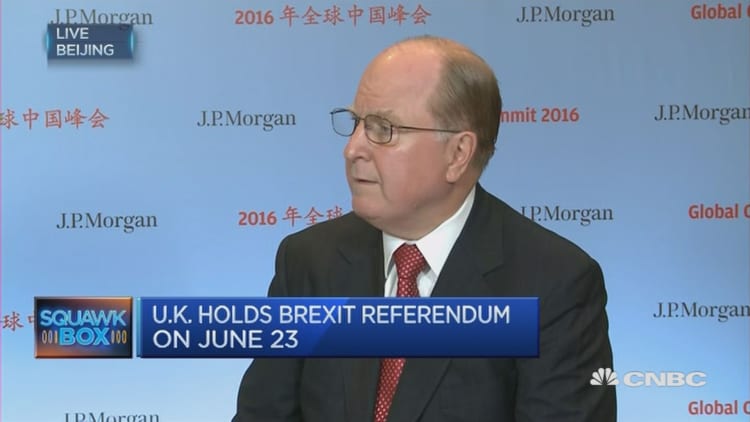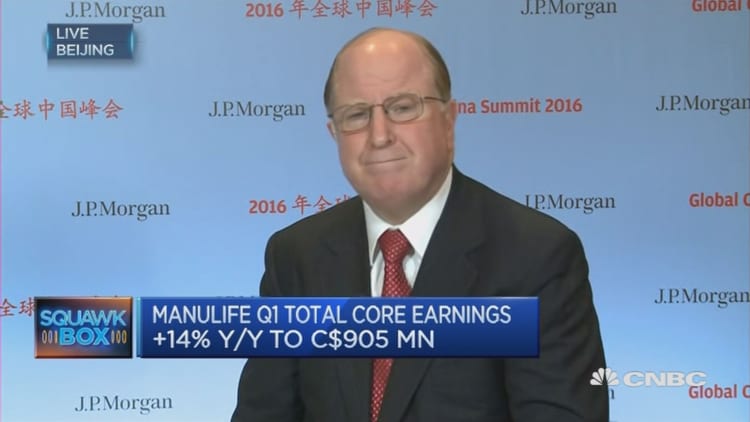

Insurers may be the poster-child for victims of ultra-low interest rates globally, but Manulife's CEO said they aren't hurting his company.
Donald Guloien told CNBC's "Squawk Box" on the sidelines of the JPMorgan Global China Summit in Beijing that as rates went down, the company started charging more for its products.
"We can make it work in a negative rate environment," he said.
But he added, "obviously, things work a lot better with a positive yield curve."
The Canada-based insurer's earnings appear to reflect its ability to compensate for lower investment returns.
In May, the company reported its first quarter net profit jumped 45 percent from a year earlier to 1.05 billion Canadian dollars ($820 million), with earnings from Asia getting a boost from a partnership with Singapore-based bank DBS in Singapore and Hong Kong.
Manulife, which operates as John Hancock in the U.S. market, had around $904 billion in assets under management at the end of the first quarter.
Guloien also said he was concerned about the possibility that Britain would vote to exit the European Union in the referendum on June 23.
"My prediction was that they stay in the European Union, but the risks are very substantial, especially to the financial sector in London," he said. "I think a lot of jobs will leave London and there's going to be short-term a pretty significant impact on the British economy."
Within Asia, Guloien said holes in the region's safety nets offer the company opportunities to sell its products, particularly in emerging markets where governments were reticent about adding benefits such as health care and where pensions may be underfunded.
He noted that the company offers products that provide health coverage as well as ones aimed at retirement saving.
Follow CNBC International on Twitter and Facebook.
—By CNBC.Com's Leslie Shaffer; Follow her on Twitter @LeslieShaffer1


